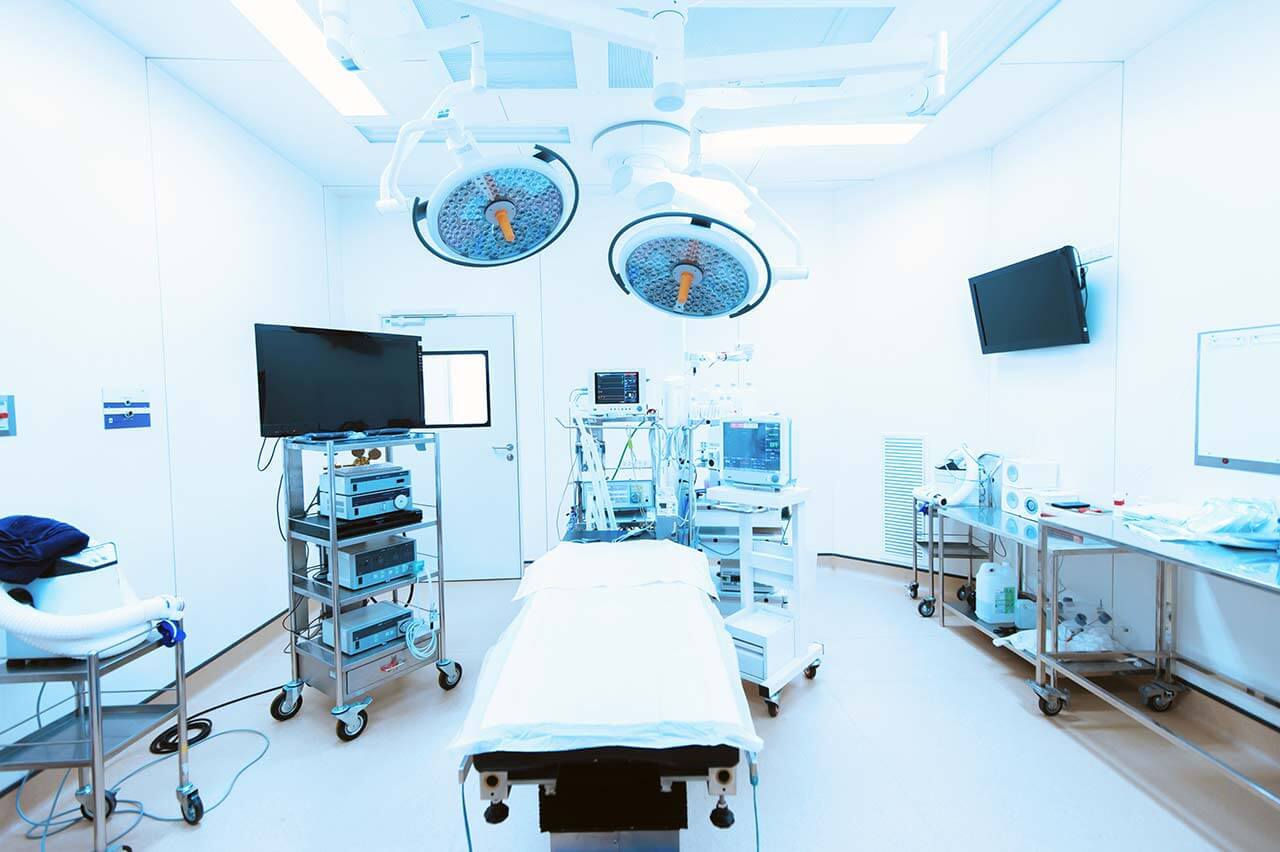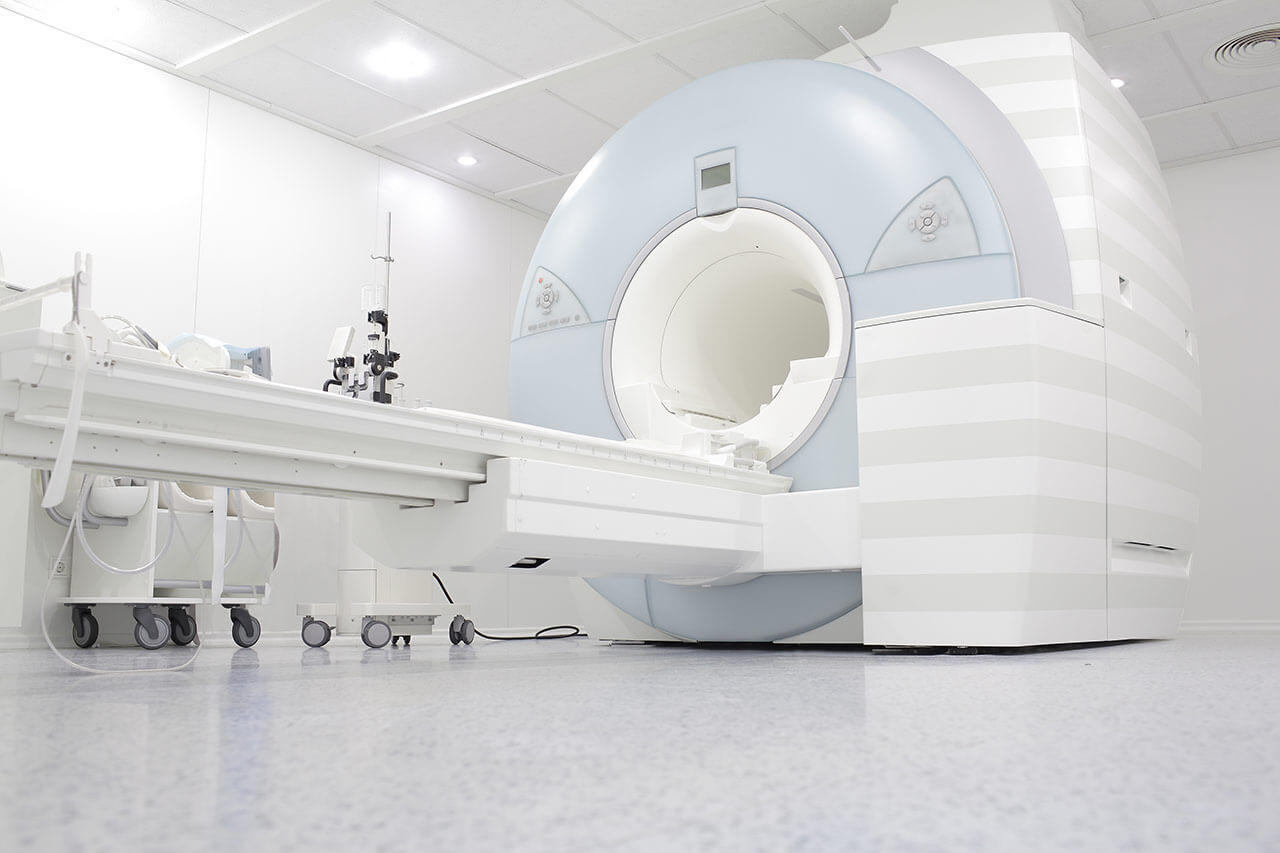
The program includes:
- Initial presentation in the clinic
- clinical history taking
- review of medical records
- physical examination
- laboratory tests:
- complete blood count
- general urine analysis
- biochemical analysis of blood
- inflammation indicators (CRP, ESR)
- indicators blood coagulation
- hormonal examination (estrogen, progesterone,
prolactin, DHEA, FSH, LH
- gynecological examination:
- colposcopy
- vaginal swab
- cervical biopsy
- histological examination
- pelvic ultrasound
- transvaginal ultrasound
- breast ultrasound
- ultrasound examination: pelvis, abdomen, thyroid
- consultation of related specialists
- symptomatic specific treatment
- the cost of essential medicines and materials
- nursing services
- control examinations
- full hospital accommodation
- developing of further guidance
Required documents
- Medical records
Service
You may also book:
 BookingHealth Price from:
BookingHealth Price from:
About the department
The Department of Pediatric Endocrinology at the ATOS Clinic Heidelberg provides the full range of medical services in its area of specialization. The department offers qualified medical care for young patients with hormonal imbalances, growth disorders, and diabetes mellitus. Of key interest is the diagnosis and treatment of diseases of the thyroid gland, parathyroid glands, adrenal glands, pituitary gland, and gonads. The specialists in the medical facility have exceptional competence in the treatment of growth and puberty disorders. They also advise young patients with syndromic diseases affecting the endocrine glands, for example, Ullrich-Turner syndrome and Klinefelter syndrome. The department has comfortable diagnostic rooms with modern ultrasound devices. The medical team of the department is focused on personalized medical care in a pleasant and comfortable environment for the child. Treatment follows the recommendations of the German Society for Pediatric and Adolescent Medicine (DGKJ), the German Society for Endocrinology (DGE), and the German Diabetes Society (DDG). The Head Physician of the department is Dr. med. Sabine Knauer-Fischer.
Treatment of thyroid diseases in children is one of the priority clinical tasks of the department's endocrinologists. The specialists diagnose and treat young patients with congenital and acquired hypothyroidism, autoimmune thyroiditis, and diffuse toxic goiter almost every day. The therapeutic process begins with a full diagnosis, including a clinical examination, blood tests to assess thyroid hormone levels, and an ultrasound scan. A treatment regimen is always determined on an individual basis: hypothyroidism is treated with drug therapy using levothyroxine, a synthetic hormone that acts like thyroid thyroxine; young patients with autoimmune thyroiditis receive vitamins and microelements; for the treatment of diffuse toxic goiter, the department's specialists offer conservative treatment with thyreostatics (medications that block the thyroid gland), which reduces the production of thyroid hormones.
The department has extensive experience in the treatment of growth disorders in children, such as tall stature, short stature, and constitutional growth delay. When a growth disorder is suspected, the endocrinologist will find out the details of the pregnancy and the child's development, after which he or she will prescribe a set of laboratory and instrumental tests. If the growth disorder is caused by an impaired function of the endocrine system, the department's specialists carry out hormone replacement therapy. Growth disorders may occur against the background of other pathologies (for example, anemia, heart disease, bronchial asthma, diabetes mellitus, etc.). Such situations require the treatment of the underlying disease. Growth disorders are often caused by deficiency of nutrients, vitamins, and microelements. In such cases, no specific treatment is required. It is enough to adjust the diet to eliminate the deficiency.
An important focus for the department's pediatric endocrinologists is the treatment of diabetes mellitus. Children are most often diagnosed with type 1 diabetes, in which the pancreas does not produce the insulin needed to transport glucose into cells. Diabetes mellitus is often diagnosed during examinations for other pathologies. The main manifestations of diabetes mellitus in children are thirst, frequent urination, weight loss for no apparent reason, and constant weakness. Symptoms of diabetes mellitus are non-specific, so young patients most often go to the doctor with hyperglycemia. Diagnosis includes a clinical examination, a glucose test, and an HbA1c blood test to determine the average blood glucose levels over the past 3 months. The goal of treatment is to maintain normal blood glucose levels and prevent complications of diabetes mellitus. This requires self-monitoring of blood glucose levels, insulin therapy, diet, and physical activity.
The department's range of medical services includes the following:
- Diagnostics and treatment of thyroid diseases
- Hypothyroidism, including the congenital form of the disease
- Autoimmune thyroiditis
- Diffuse toxic goiter
- Diagnostics and treatment of growth disorders
- Tall stature
- Short stature, including due to intrauterine growth restriction
- Constitutional growth delay
- Diagnostics and treatment of puberty disorders
- Precocious puberty
- Delayed puberty
- Hypogonadism (androgen deficiency)
- Diagnostics and treatment of adrenal diseases
- Congenital adrenal hyperplasia
- Addison's disease
- Cushing's syndrome
- Diagnostics and treatment of pituitary diseases
- Pituitary hormone deficiency (panhypopituitarism)
- Growth hormone deficiency
- Central hypothyroidism
- Central hypogonadism
- Diagnostics and treatment of hirsutism
- Diagnostics and treatment of bone metabolism disorders
- Vitamin D deficiency (rickets)
- Hypoparathyroidism and pseudohypoparathyroidism
- Diagnostics and treatment of syndromic diseases affecting the endocrine glands
- Ullrich-Turner syndrome
- Klinefelter syndrome
- Diagnostics and treatment of diabetes mellitus
- Diagnostics and treatment of other endocrine diseases in children and adolescents
Curriculum vitae
Higher Education and Professional Career
- March 1983 - November 1989 Medical studies, Ruprecht Karl University of Heidelberg.
- 1990 Thesis defense, Ruprecht Karl University of Heidelberg.
- January 1990 - June 1991 Internship, Institute of Pathology, Heinrich Heine University Duesseldorf.
- June 1991 - October 1991 Research Fellow, Heinrich Heine University Duesseldorf.
- November 1991 - September 2003 Assistant Physician, Department of Pediatric and Adolescent Medicine, University Hospital Essen.
- October 1997 Board certification in Pediatric and Adolescent Medicine.
- October 2003 - December 2006 Research Fellow, Center for Pediatric and Adolescent Medicine, Heinrich Heine University Duesseldorf; Head Physician, Department of Pediatric Endocrinology, University Hospital Duesseldorf.
- February 2007 - September 2011 Research Fellow, Center for Pediatric and Adolescent Medicine, Department of Pediatric Endocrinology and Diabetology, Ruprecht Karl University of Heidelberg.
- Since September 2011 Head Physician, Department of Pediatric Endocrinology, ATOS Clinic Heidelberg.
- Since March 2013 Head Physician, Department of Pediatric Endocrinology, University Hospital Mannheim.
Qualifications
- Board certification in Pediatric and Adolescent Medicine.
- Additional qualifications in Pediatric Endocrinology and Diabetology (certificate by the German Diabetes Society, DDG).
Memberships in Professional Societies
- German Society for Pediatric and Adolescent Medicine (DGKJ).
- Working Group on Pediatric Endocrinology and Diabetology (APE) and Working Group on Pediatric Diabetology (AGPD) of the German Society for Pediatric and Adolescent Medicine (DGKJ).
- Professional Association of Pediatricians (BVKJ).
- German Society for Endocrinology (DGE).
- European Society for Pediatric Endocrinology (ESPE).
- Endocrine Society.
- German Diabetes Society (DDG).
Photo of the doctor: (c) ATOS Klinik Heidelberg
About hospital
The ATOS Clinic Heidelberg is a reputable medical complex with high standards of patient care. The clinic was founded in 1991. Since then, it has taken a leading position in the European medical arena in the treatment of diseases of the musculoskeletal system and many other pathologies. The clinic has a highly professional team of doctors, many of whom are world-renowned professors. Specialists work with state-of-the-art equipment. They use classical and innovative treatment methods with high efficiency. Personalized medical care is a priority in the clinic: doctors carefully study each clinical case and develop individual diagnosis and treatment regimens, taking into account each patient's needs and wishes. Patients not only from Germany but also from other countries of the world regularly seek medical help from the clinic, which indicates the outstanding quality of medical services and the high level of trust patients have in the specialists of the ATOS Clinic Heidelberg.
In addition to providing top-notch medical care, the clinic is distinguished by its modern design. When a patient crosses the threshold of the clinic, he or she has the impression that he or she is not in a medical facility but in a luxury hotel. This idea is part of the clinic's working concept because the patient's comfort and psychological state play an important role in achieving successful treatment outcomes. The clinic offers cozy rest areas where patients can distract themselves from the therapeutic process and socialize. It goes without saying that the equipment in the diagnostic, treatment, and operating rooms is of a very high standard, which enables effective and safe treatment.
Patient care is important throughout the therapeutic process. The nursing staff treats each patient's life situation with respect and compassion and surrounds him or her with care. The doctors are focused on the best results, are always open to communication with the patient, and are happy to answer any questions.
More than 96% of patients rate their treatment experience and the quality of medical care at the ATOS Clinic Heidelberg positively.
It should be noted that the clinic is recognized as one of the best in the country in the field of foot surgery, hand surgery, hip, knee, and shoulder surgery, as well as in the field of spine surgery and aesthetic plastic surgery, according to the rating of Focus magazine.
Photo: (с) depositphotos
Accommodation in hospital
Patients rooms
The patients of the ATOS Clinic Heidelberg stay in single and double rooms. The clinic also offers accommodation in enhanced-comfort patient rooms. The patient rooms are made in light colors and modern design to create a comfortable and cozy atmosphere during the patient's stay in the hospital. The standard rooms are equipped with an automatically adjustable bed, a bedside table, a TV, a telephone, and air conditioning. The rooms have Wi-Fi access. Enhanced-comfort patient rooms are additionally equipped with upholstered furniture, a safe, and a mini-bar.
Meals and Menus
The clinic offers delicious and varied meals three times a day: breakfast is served as a buffet, lunch offers a choice of three set menus, and dinner also offers a choice of several set menus. The menu is mainly European cuisine. If, for some reason, you cannot eat all the foods on the menu, you will be offered an individual menu. Please inform the medical staff about your dietary preferences prior to the treatment.
The clinic also has a cozy cafe with a wide range of hot and cold drinks, cakes, snacks, sandwiches, salads, and hot dishes.
Further details
Standard rooms include:
![]() Toilet
Toilet
![]() Shower
Shower
![]() Wi-Fi
Wi-Fi
![]() TV
TV
Accompanying person
Your accompanying person may stay with you in your patient room or at the hotel of your choice during the inpatient program.
Hotel
You may stay at the hotel of your choice during the outpatient program. Our managers will support you for selecting the best option.




